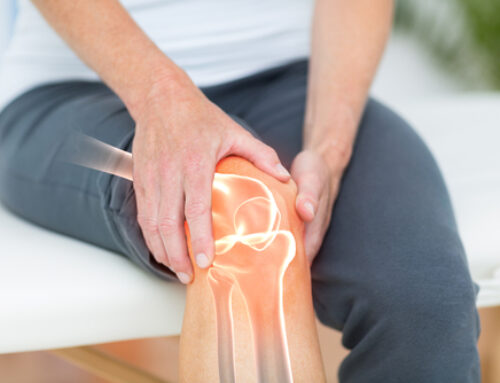Sleep is an essential aspect of our overall well-being, and its importance becomes even more evident when considering its intricate relationship with pain. For those struggling with pain and sleep disturbances, understanding this connection is crucial for finding relief and improving their quality of life. In this article, we will delve into the fascinating connection between sleep and pain, exploring the bidirectional relationship, underlying mechanisms, and providing valuable tips and techniques to enhance sleep for better pain management.
I. Introduction
Living with chronic pain can significantly impact an individual’s sleep patterns and overall sleep quality. Conversely, inadequate or disrupted sleep can exacerbate the perception of pain, creating a vicious cycle that can be challenging to break. By exploring the link between sleep and pain, we can discover effective strategies to improve sleep, alleviate pain, and enhance overall well-being.
II. The Relationship Between Sleep and Pain
Pain and sleep share a complex and bidirectional relationship. On one hand, pain can disrupt the ability to fall asleep, stay asleep, and experience restorative sleep. The discomfort and physical limitations caused by pain can make it difficult to find a comfortable position and relax enough to drift into sleep. Additionally, pain can lead to frequent awakenings throughout the night, further disrupting the sleep cycle.
On the other hand, poor sleep quality can heighten pain sensitivity and make the experience of pain more intense. When we don’t get enough sleep, our pain threshold decreases, meaning that we may perceive pain more acutely than when we are well-rested. Lack of sleep also impairs our body’s natural pain modulation mechanisms, making it harder for us to cope with and manage pain.
III. Mechanisms Linking Sleep and Pain
Several underlying mechanisms contribute to the intricate relationship between sleep and pain. One key factor is the involvement of the central nervous system. Sleep disturbances can disrupt the normal functioning of the central nervous system, affecting pain perception and modulation. Studies have shown that poor sleep quality can increase the activity of pain-related regions in the brain, leading to heightened pain sensitivity.
Inflammatory processes also play a role in the sleep-pain interaction. Inflammatory conditions, such as arthritis or fibromyalgia, can cause pain and simultaneously disrupt sleep. Inflammation triggers the release of cytokines, which not only contribute to pain but also interfere with sleep architecture, leading to fragmented and less restorative sleep.
Furthermore, sleep disturbances can amplify pain signals. Sleep deprivation or insufficient sleep can lower the pain threshold, making us more susceptible to experiencing pain. Sleep plays a crucial role in pain processing and regulation, and disruptions in sleep patterns can result in heightened pain perception.
IV. Tips for Improving Sleep for Better Pain Management
While managing pain completely may not always be possible, there are steps that individuals can take to improve their sleep quality and, in turn, better manage their pain. Consider the following tips:
- Establish a regular sleep schedule: Maintaining a consistent sleep routine by going to bed and waking up at the same time helps regulate the body’s internal clock, promoting better sleep.
- Create a conducive sleep environment: Make your bedroom a sleep-friendly space by ensuring it is cool, dark, and quiet. Use comfortable bedding and invest in a supportive mattress and pillow.
- Adopt relaxation techniques before bedtime: Engage in activities that promote relaxation, such as reading a book, taking a warm bath, practicing deep breathing exercises, or listening to calming music.
- Implement sleep hygiene practices: Avoid stimulating activities close to bedtime, such as using electronic devices or consuming caffeine. Create a relaxing bedtime routine that signals your body it’s time to wind down.
- Consider the use of pain medications and sleep aids under medical supervision: Consult with a healthcare professional to explore appropriate pain medications or sleep aids that can help manage both pain and sleep disturbances.
V. Cognitive-Behavioral Strategies for Enhancing Sleep and Pain Management
Cognitive-behavioral strategies can be highly effective in improving sleep and managing pain. Cognitive-behavioral therapy for insomnia (CBT-I) is a structured program that helps individuals identify and modify negative thought patterns and behaviors that contribute to sleep difficulties. By addressing underlying psychological factors and implementing techniques like sleep restriction and stimulus control, CBT-I can improve sleep quality and reduce pain intensity.
Mindfulness-based practices offer another avenue for enhancing sleep and pain management. Techniques such as mindfulness meditation and body scans can help individuals develop a non-judgmental awareness of their pain and promote relaxation and acceptance, ultimately leading to improved sleep quality.
Stress reduction techniques, such as progressive muscle relaxation and deep breathing exercises, can also positively impact both sleep and pain management. By actively managing stress levels, individuals can create a more conducive environment for restful sleep and alleviate pain-related tension.
VI. Lifestyle Modifications for Better Sleep and Pain Relief
Certain lifestyle modifications can contribute to better sleep and pain relief. Regular physical exercise, tailored to individual capabilities, can help reduce pain and improve sleep quality. Engaging in activities such as walking, swimming, or yoga promotes the release of endorphins, which are natural pain relievers, and enhances overall well-being.
Maintaining a healthy diet can also positively influence sleep and pain management. Avoiding heavy meals close to bedtime, limiting the consumption of caffeine and alcohol, and ensuring a balanced intake of nutrients can help regulate sleep patterns and reduce pain-related inflammation.
Additionally, adopting proper sleep posture can alleviate pain and improve sleep quality. Experimenting with different sleep positions, such as sleeping with a pillow between the knees for back pain or using a supportive pillow for neck pain, can make a significant difference in reducing discomfort during sleep.
VII. Alternative Therapies to Enhance Sleep and Pain Management
In addition to traditional approaches, alternative therapies can complement conventional methods in enhancing sleep and pain management. Acupuncture and acupressure have shown promising results in relieving pain and improving sleep quality. These practices involve stimulating specific points on the body to restore balance and promote relaxation.
Herbal supplements and natural remedies, when used judiciously and under professional guidance, may provide some individuals with additional relief. Substances like valerian root, chamomile, and lavender have been traditionally used for their calming properties and may help promote better sleep.
Massage therapy is another alternative therapy that can aid in pain relief and relaxation. Skilled massage therapists can target specific areas of pain or tension, helping to alleviate discomfort and promote a sense of well-being conducive to improved sleep.
VIII. Seeking Professional Help for Sleep and Pain Issues
While self-help strategies can be beneficial, it is essential for individuals experiencing chronic pain and sleep disturbances to seek professional help. Consulting with healthcare providers, such as sleep specialists, pain management specialists, or physical therapists, can lead to a comprehensive evaluation and personalized treatment plan.
Multidisciplinary approaches that combine medical interventions, physical therapy, psychological support, and lifestyle modifications can offer the best outcomes for managing both sleep and pain effectively. These healthcare professionals can provide guidance on appropriate medications, therapies, and interventions tailored to the individual’s specific needs.
IX. Conclusion
Understanding the connection between sleep and pain is vital for those facing the challenges of chronic pain and sleep disturbances. By recognizing the bidirectional relationship and implementing strategies to enhance sleep, individuals can improve their pain management and overall quality of life. Through techniques such as establishing a sleep routine, utilizing cognitive-behavioral strategies, adopting lifestyle modifications, and exploring alternative therapies, individuals can take proactive steps toward better sleep and reduced pain.





